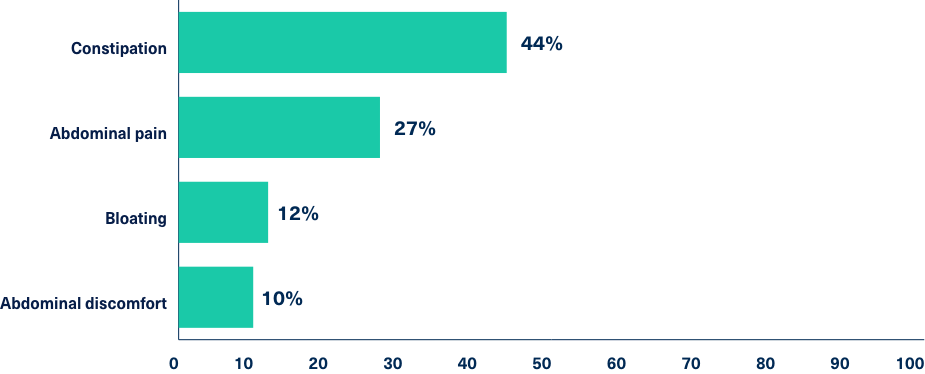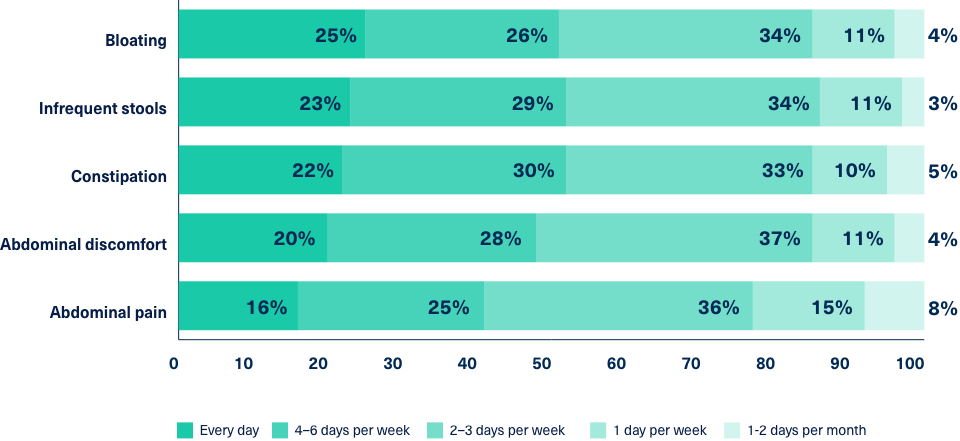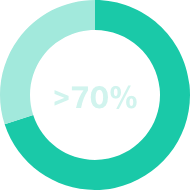IBS-C is characterized predominantly by abdominal pain and constipation.1 Patients also report abdominal symptoms such as pain, bloating, and distension.2 Talking to the right healthcare professional is half the battle; the other half is having an honest, open conversation with that healthcare professional, telling them about the full extent of symptoms, their impact, and what approaches have already been tried to manage them.3 The Patient Discussion Guide can be used to help classify abnormal bowel movements.
MILLIONS EXPERIENCE SYMPTOMS ALMOST EVERY DAY
IBS-C SYMPTOM SEVERITY AND FREQUENCY DISRUPTS LIVES
Recurrent abdominal pain and constipation are the main symptoms of IBS-C. People with IBS-C often experience disruptive symptoms, including bloating, abdominal discomfort, straining, and hard, lumpy stools.3,5
When IBS-C patients were asked which symptoms were most bothersome and frequent, they responded with the following:2
Most Bothersome Symptoms in Adults with IBS-C3*

IBS-C Patients Suffer from Symptoms Nearly Every Day3*

Impact of IBS-C symptoms on daily living

More than 60% of people with IBS-C avoid situations where there’s no bathroom nearby.5*

More than 70% of people with IBS-C report they do not feel normal or “like myself.”5*
IBS-C IMPACTS RELATIONSHIPS5*
Downloadable Resources for You and Your Patients
An open dialogue focused on understanding the patient’s most bothersome symptoms may help reduce treatment delays and improve treatment expectations. The resources here are designed to help start the conversation and help with patient education and treatment management.
MY BOYFRIEND IS REALLY GREAT ABOUT MY IBS BUT I FEAR ONE DAY HE WILL JUST GET TIRED OF IT. I UNDERSTAND WHY, BUT IF HE JUST UNDERSTOOD WHAT I GO THROUGH.6
I WAS DIAGNOSED WITH IRRITABLE BOWEL SYNDROME IN MY LATER THIRTIES … I HAVE NEVER-ENDING CONSTIPATION, WITH PAIN AND BLOATING. WHETHER I EAT OR DON’T EAT, THE SYMPTOMS JUST TEAR ME APART.6